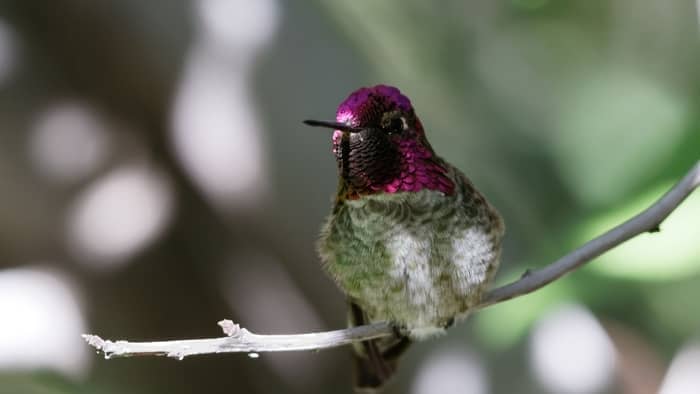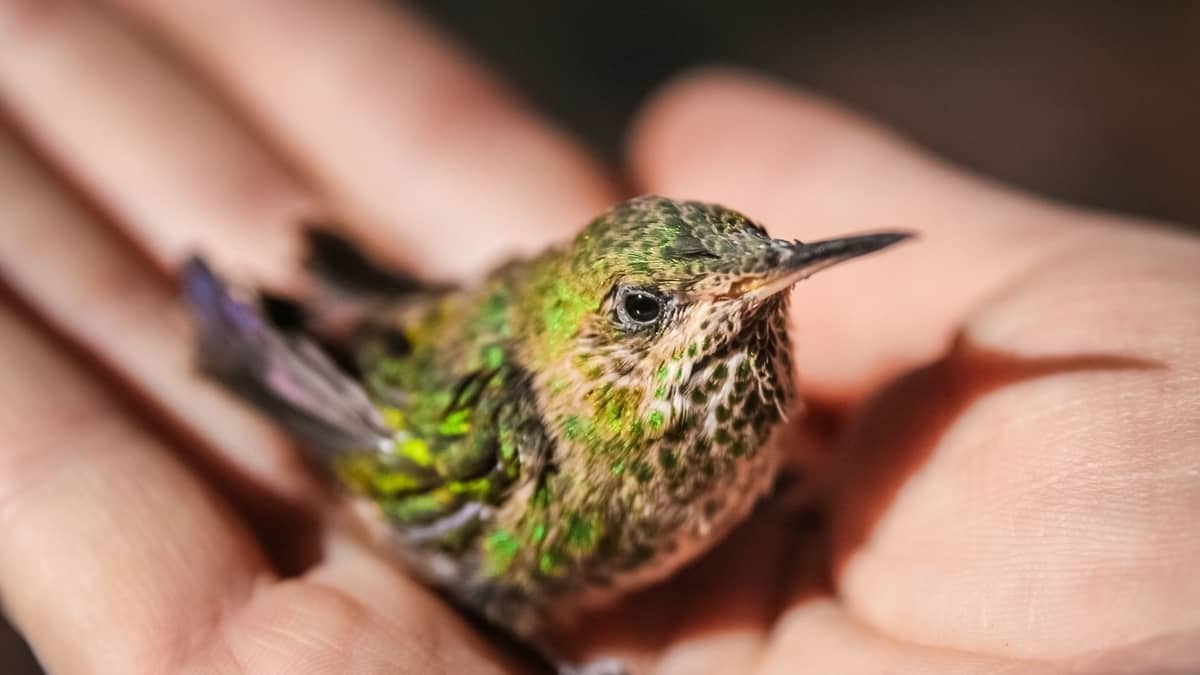As little as hummingbirds are, they are vigorous birds that are involved in fast activities such as feeding on nectar multiples times, hovering in a spot, flapping their wings so fast, and so on. With their swift activities, you may be wondering how fast a hummingbird’s heart beat is? Let’s find out.
Hummingbirds are some of the most unique birds you can find. They are fast-moving birds with fast heartbeats. Hummingbird’s heart rate is very fast during the day and this is because they are always active during the day.
However, when its night time, they slow down their activities as well as their heartbeat because they are in their resting stage.
To know more about these charming birds’ vigorous activities, let’s further look into how fast a hummingbird’s heartbeat is and other similar activities.
Some Info On Hummingbird
Hummingbirds are one of the smallest fast-moving birds in the world. Among over ten thousand known bird species in the world, hummingbirds are one of the smallest. The majority of the adult hummingbirds only attains about 3.3 inches in length. They don’t even weigh up to an ounce. They can weight about 0.07 to 0.07 ounces.
Although hummingbirds don’t have a sense of smell, they however have very sharp eyesight. These fast birds tend to feed on nectar multiple times, have the ability to fly forward and backward, beat their wing so fast in a spot, travel long journeys, and so on.
They have the ability to change their flight directions in such a way that other kinds of birds can’t. This is because of the unique ball and socket joint they have at their shoulder. This allows them to rotate their wings 180 degrees in all directions.

What Is The Heart Rate Of A Hummingbird?
A hummingbird’s heart tends to beats so fast. Even faster than a human being’s heart rate. When hummingbirds are in their full flight, their heart rate will beat as fast as 1,260 per minute. In a second, their wings can beat or flap up to 80 times.
Therefore, the heartbeat of a hummingbird per minute is over 1,200.
Why Does Hummingbird Have A Fast Heart Beat?
The tiny hummingbird requires a fast heart rate because of its high metabolism. During their migration, they need to fly a very far distance. They will journey by migrating north to their breeding ground and then south to spend winter.
The most popular type of hummingbird is the Ruby-throated species that can travel as far as 500 miles without stopping as they cross the Gulf of Mexico. This far journey can take these tiny hummingbirds at least 20 hours.
Another astonishing species migratory pattern is the Rufous hummingbird. They can travel as far as 3,700 miles or more as they journey from Mexico to Alaska.
With these demanding activities, it’s only logical for their heart rate to always beat so fast. They also have good endurance and energy to travel these far thanks to a large amount of sugar from the nectar they consume.
This is why hummingbirds will feed a lot and gather up energy and fats when the time is close for their migration. Hummingbirds have the ability to pack on weight as much as 40 percent of their body weight. Hummingbirds also have a very fast digestive system.
They have the ability to digest the sugar they obtain from the nectar they feed on in as fast as 20 minutes. Up to 97% of sugar they consume from nectar is converted into energy.
Therefore, their daily high energy-requiring activities require them to consume plenty of nectar to meet their high metabolism. So, this makes the hummingbird’s heartbeat so fast.
Hummingbird’s Heart Rate During Torpor
Hummingbird resting state is called torpor and they usually go into torpor at night when they go to sleep. During torpor, the hummingbird will slow down their heart rate.
But how fast is a hummingbird’s heart rate during torpor state? When hummingbirds enter torpor state, they will drop their rate to about 50 to 250 beats per minute.
Torpor State
Torpor is a hibernation-like state for hummingbirds. This torpor state assists hummingbirds conserve energy for the next day’s activities. The hibernation-like state they enter is really deep and their metabolism rate will drop to about 1/5 of their usual active rate.
Therefore, their breathing rate will slow down during this period. All these alterations in their torpor state allow them to conserve around 60% of the energy they normally make use of during their active state in the day.
Furthermore, the torpor state allows hummingbirds to withstand extremely cold nights. Torpor also helps hummers survive periods where there is a shortage or scarcity of food.
In their torpor state, hummingbirds can even hang upside down. They may even look dead in this state, but take note because they aren’t dead. So, in case you stumble upon them during this state, just let them be. They will come back active as it gets warmer the next day and they will wake up flying around.

Hummingbirds waking up from their torpor state can take up to 20 minutes or more. They tend to lose energy during torpor night. So, once they are fully awake, the very first thing they do is look for food and feed heavily.
They will feed heavily the next morning so they can get back the lost energy from the previous night. Hummingbirds can consume about 20% of their daily intake in the morning.
Learn more about How Often To Clean Hummingbird Feeder
How Fast Is A Hummingbird Heart Beat: Summary
These tiny hummingbirds are vigorous birds with high demanding activities. Their heartbeat is even higher than that of humans.
So, here are some of the major points we looked at on how fast a hummingbird’s heartbeat is:
- How fast a hummingbird’s heartbeat is over 1,200 beats per minute especially when they are in full flight.
- They have a very high metabolism.
- Their high demanding activities require them to feed multiple times.
- Hummingbirds are into fast activities such as flapping their wings, traveling very long distances, hovering in a spot, feed on nectar multiple times, and so on. All these fast activities tend to increase the heartbeat of hummingbirds.
- Their heartbeat slows down drastically during their resting states also known as the torpor state.

